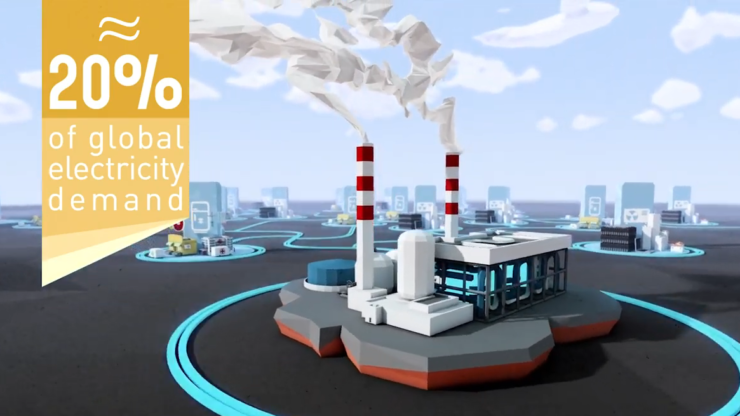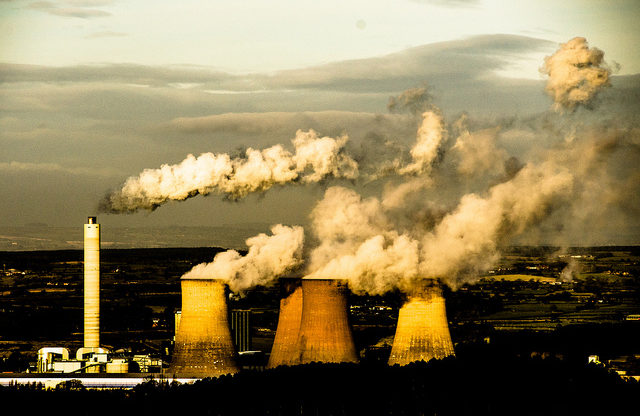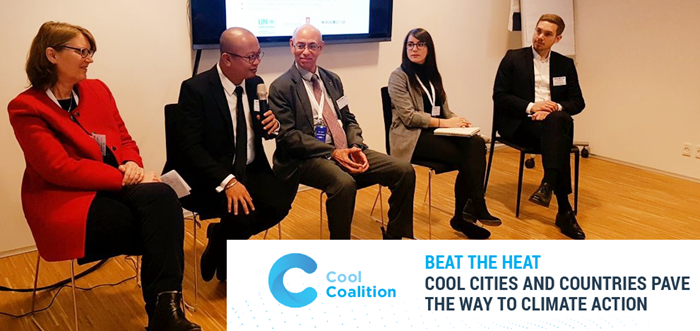The year 2020 is forecasted to be one of the hottest on record. As we approach the warm season in a world still severely impacted by the Covid-19 pandemic, the situation could hamper efforts to protect vulnerable groups from heat this summer.
The effectiveness of interventions to protect from heat, including risk communications, outreach to vulnerable groups, use of cooling centres, and heat-related health impact surveillance, will most likely decrease. This, coupled with the fact that some of those at highest risk from Covid-19 are also most vulnerable to heat means, that it is urgent to revise all aspects of heat-health action plans that could be affected by the pandemic and by the responses to it.
These are some of the conclusions in a new article, Protect the vulnerable from extreme heat during the COVID-19 pandemic, published in the Environmental Research Journal. The article was led by UNEP DTU Partnership senior advisor, Dr Gerardo Sanchez Martinez, and written with experts from the Instituto de Salud Carlos III in Madrid and the Department of Epidemiology of the Lazio Regional Health Service in Rome.
COVID-19 prevention hampering heat health plans
Several health authorities throughout the world at the federal, national, subnational and local levels run prevention plans to respond to and reduce health impacts of heat. These plans typically comprise a series of interventions, including heat warning systems, advice and information on keeping safe from heat, specific outreach and care for vulnerable population groups, surveillance of heat-related mortality and illnesses, and local interventions to reduce heat exposure through cooling centres and cool recreational areas.
The physical distancing measures and common space use restrictions set in place in response to the COVID-19 pandemic may hamper the implementation of those core heat-health prevention activities and aggravate the population’s vulnerability to extreme temperatures this summer.
For example, the effectiveness of heat warnings and health protective advice could be diminished in a context of widespread health warnings and information related to COVID-19.
Similarly, the ability to reach out to and care for vulnerable people may be severely impaired in the current context of overwhelmed health and social care systems at every level. Adequate engagement of local governments and NGOs in heat-health action plans – still uncommon in most places- can help in protecting the most vulnerable against heat. In addition, fear of contracting COVID-19 may prevent some patients from seeking care even when experiencing heat-related symptoms, for example, related to pre-existing conditions or interactions with medications.
Double risks for vulnerable groups
Risk factors and pre-existing conditions that increase the risk of severe symptoms from COVID-19, such as hypertension, cardiovascular diseases, diabetes mellitus, and chronic kidney disease are also risk factors during heatwaves.
Since some of the people who are at highest risk of severe outcomes from COVID-19 are also the most vulnerable to health risks from heat, gathering them in air conditioned spaces is potentially risky and should be done only if adequate space and facility setup can be guaranteed.
Moreover, it is vital that epidemiologic rapid surveillance systems these systems are not entirely devoted to COVID-19 activity and still have the bandwidth to detect health impacts related to heat waves in order to ensure an adequate and timely response.
Some forecasts predict that 2020 may also be one of the hottest, if not the hottest, year on record so finding and implementing solutions to these conundrums is urgent. Any decisions will inevitably have to be made with limited information and plagued by uncertainty.
The article seeks to address these uncertainties and start a discussion that can help create the best possible protection of vulnerable people from both heat and the Covid-19 pandemic.
The article has been referenced in the public health materials of the Global Heat Health Information Network, a joint undertaking of WHO and WMO. Dr Martinez is also a contributing author to their just-published technical brief on COVID and Heat.


